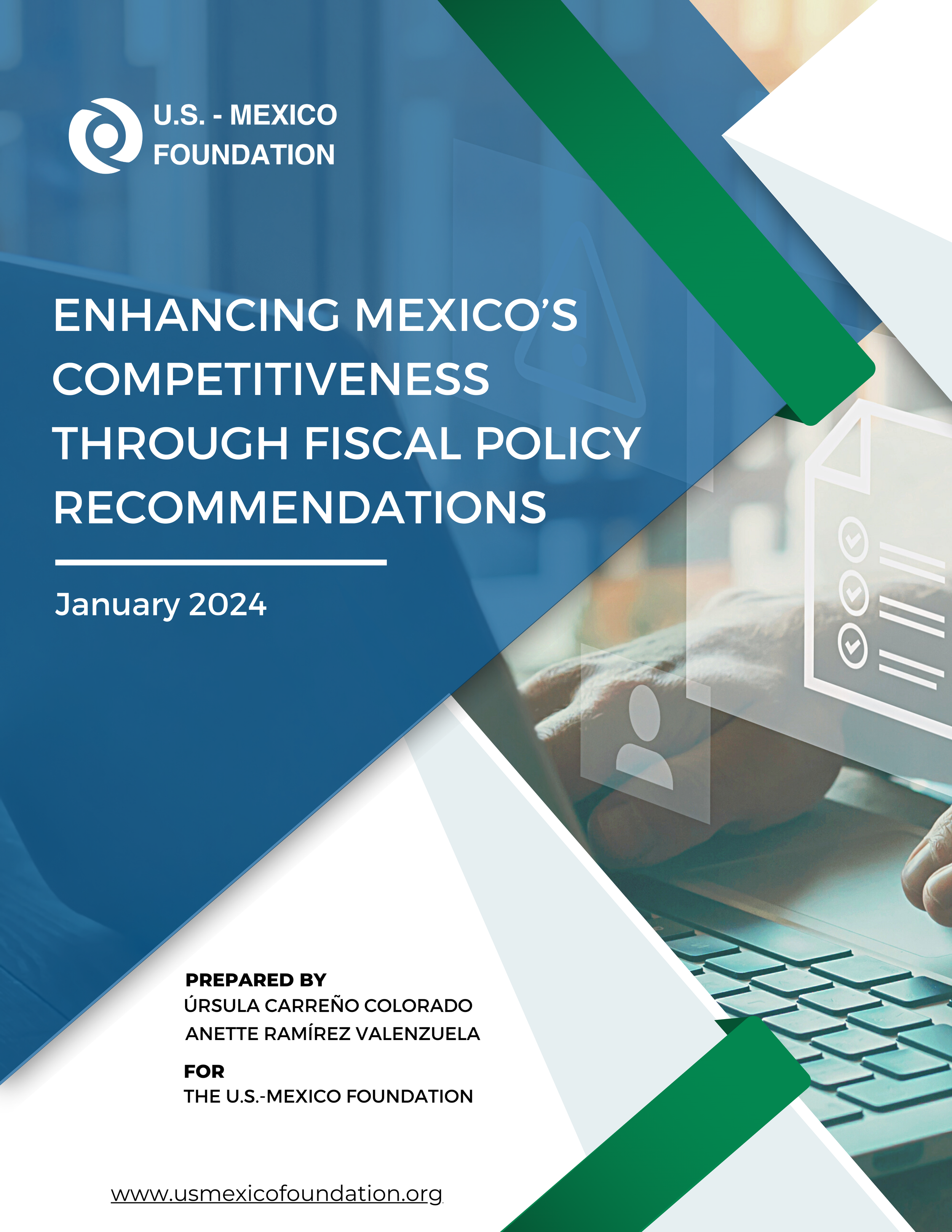Mexico’s Competitiveness through Fiscal Policy
Mexico stands at the crossroads of an unprecedented opportunity in near-shoring, with fiscal policy taking center stage. In a world marked by global trade tensions, supply chain disruptions, and geopolitical uncertainties, the need for strategic repositioning has never been more apparent. “Enhancing Mexico’s Competitiveness through Fiscal Policy Recommendations” delineates crucial recommendations for reshaping Mexico's fiscal policy, aligning it with the growing near-shoring trend.
As the landscape of international trade undergoes various shifts, Mexico emerges as a promising nearshoring destination. Nevertheless, Mexico's potential still needs to be explored, presenting room for improvement in areas like tax competitiveness and diversification of trade partnerships. The introduction of tax incentives in Mexico marks a pivotal moment geared towards empowering companies making intra-country relocations, with a particular focus on critical sectors like electronics, semiconductors, and pharmaceuticals.
In an era of dynamic competition for nearshoring opportunities, Mexico can strengthen its position as an attractive destination by embracing recommendations that revamp its fiscal framework. Key measures include revisiting interest deduction limits, eliminating constraints on worker payment deductions, streamlining the process for returning credit balances, and explicitly including a Research and Development (R&D) deduction. These strategic actions can reshape Mexico's economic landscape, fortify its fiscal sustainability, and ultimately enhance the well-being of its populace. The successful implementation of these tax incentives and policy recommendations will be instrumental in securing Mexico's standing as a formidable and competitive near-shoring hub, poised to reap the rewards of this transformative trend.
This report was prepared for the U.S.-Mexico Foundation by Úrsula Carreño Colorado and Anette Ramírez Valenzuela, with the support of AB-Inbev.
”Enhancing Mexico’s Competitiveness Through Fiscal Policy Recommendations”
Nearshoring, fueled by trade tensions, is on the rise, offering benefits like enhanced supply chain control and economic growth. Despite being a major U.S. trade partner, Mexico faces challenges in attracting nearshoring compared to U.S. states. Mexico's tax system provides opportunities for U.S. investors, and in response to nearshoring trends, it introduced tax incentives in October 2023. Recommendations for competitiveness include reviewing deduction limits and focusing on critical sectors. The impact of these measures on Mexico's economic landscape is yet to be seen.
Supported by:


